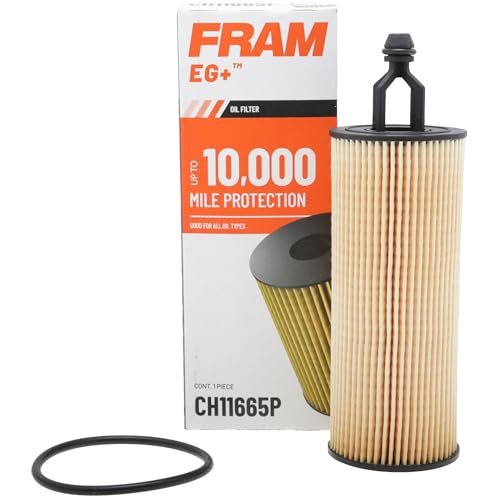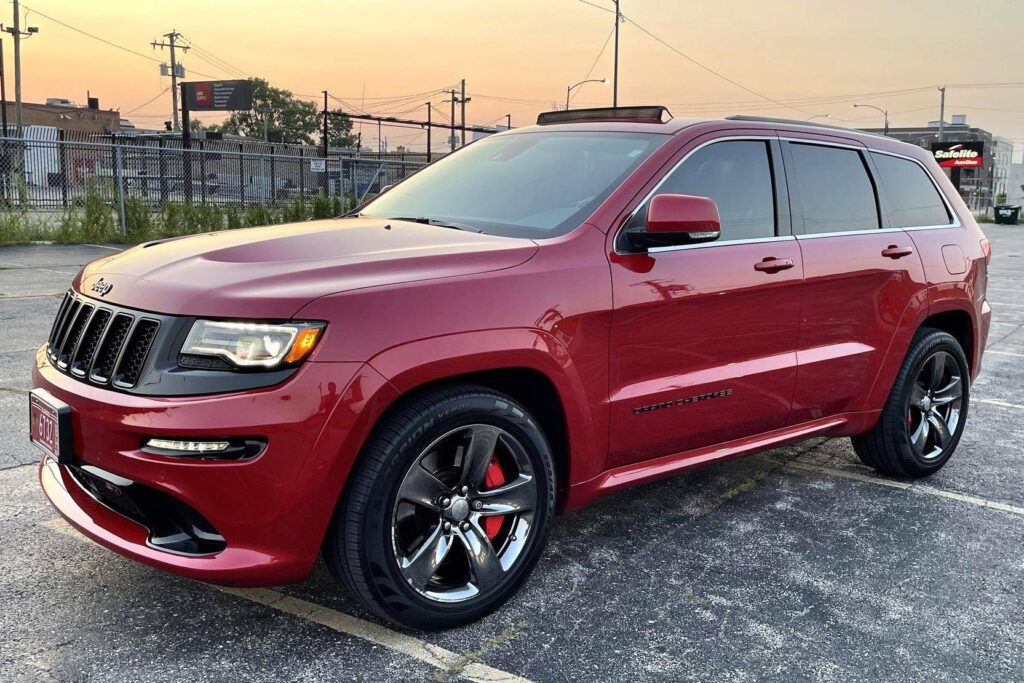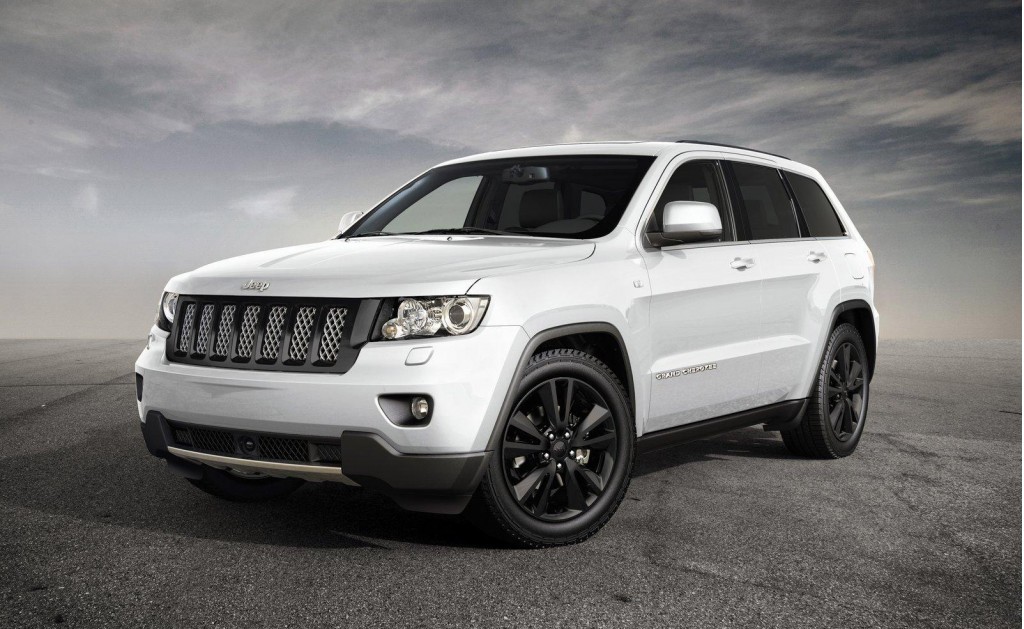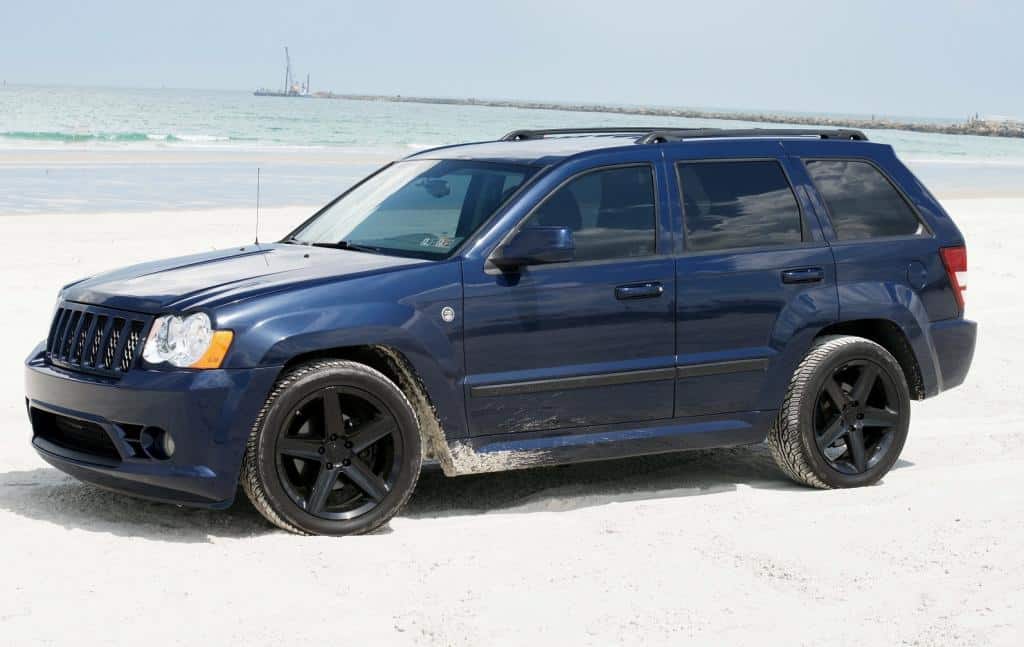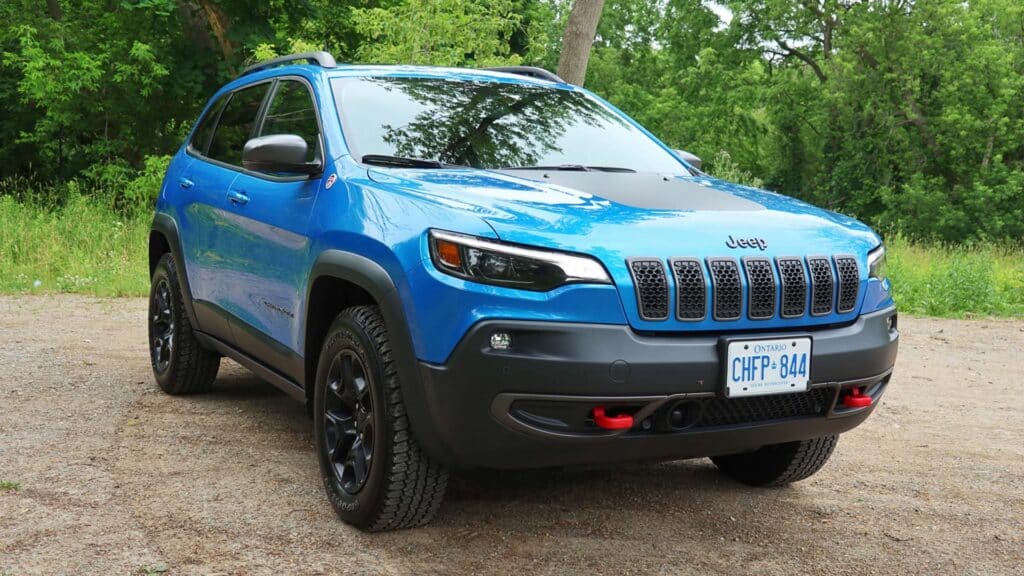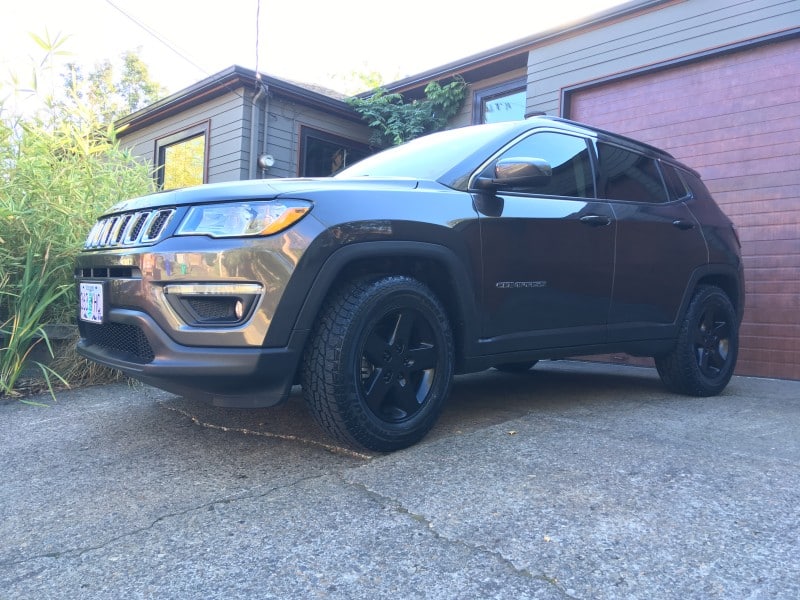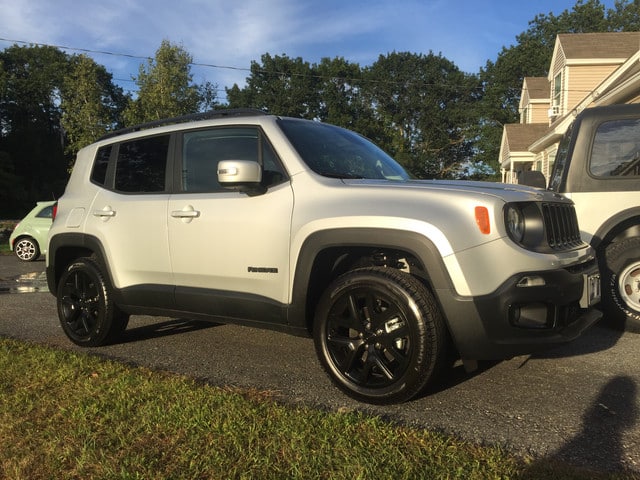The engine is the heart of your vehicle, and like any heart, it needs the right kind of lifeblood to perform at its best. That’s why it’s crucial to use the correct type of oil for your 2017 Jeep Grand Cherokee. Using the right oil ensures optimal performance, increases the longevity of your engine, and keeps your vehicle running smoothly, reducing the risk of breakdowns and costly repairs.
The 2017 Jeep Grand Cherokee, an epitome of raw power combined with elegance, comes with two engine options. There’s the 3.6L V6 engine, known for its robust performance and impressive fuel efficiency. Then there’s the 5.7L V8 engine, a beast of power that delivers a thrilling ride and superior towing capacity. While different in size and performance, both engines share a common trait – they demand high-quality engine oil to maintain their peak performance.
Whether you’re planning a road trip through the countryside, tackling rugged off-road terrains, or navigating city streets, using the correct oil type for your 2017 Jeep Grand Cherokee will ensure your ride is as smooth and efficient as possible.
What Type Of Oil Does A 2017 Jeep Grand Cherokee Take?
When it comes to the 2017 Jeep Grand Cherokee, the type of oil used can make a significant difference in your vehicle’s performance. Both the 3.6L and 5.7L engines have their specific recommended oil.
For the 3.6L engine, it’s recommended to use API Certified SAE 0W-20 Engine Oil that meets FCA Material Standard MS-6395. For the 5.7L engine, the recommended oil is API Certified SAE 5W-20 Engine Oil, also meeting FCA Material Standard MS-6395. These particular types of engine oil are designed to maintain the optimum performance of your engine and meet the high standards set by Fiat Chrysler Automobiles (FCA).
Brands such as Mopar, Pennzoil, and Shell Helix are highly recommended as they consistently produce high-quality oils that meet or exceed these standards.
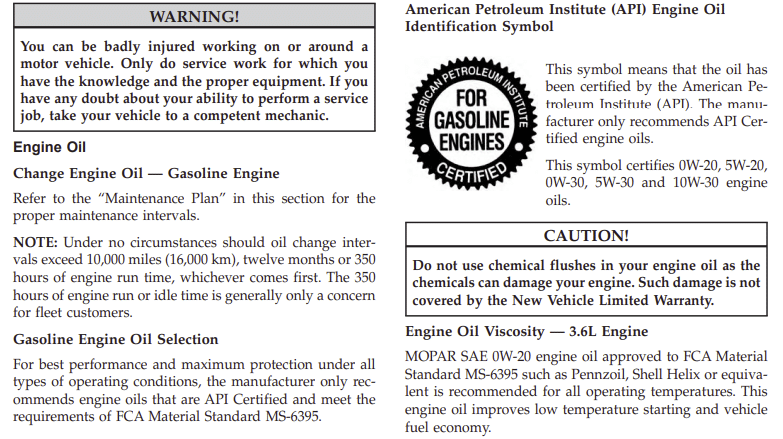
The oil capacity differs between the two engines. The 3.6L engine requires 6 quarts (5.6 liters) of oil, while the larger 5.7L engine requires 7 quarts (6.6 liters). Always ensure to use the correct quantity of oil to avoid any potential engine damage.
Using the recommended oil is crucial for maintaining the health and longevity of your engine. High-quality engine oil lubricates the engine’s moving parts, reduces friction and heat generation, and helps maintain the overall efficiency of the engine. It also aids in the prevention of carbon and varnish deposit buildup, which can lead to engine damage.
Engine Oil Filter
A crucial component to ensure the longevity of your 2017 Jeep Grand Cherokee’s engine is the oil filter. For both the 3.6L and 5.7L engines, it’s recommended to use a Mopar Engine Oil Filter or an equivalent high-quality alternative. This filter plays a vital role in the longevity and performance of your engine, so choosing the right one is paramount.
Oil filters are essential as they trap any dirt, debris, and metal fragments that have been created due to wear and tear. If these particles aren’t filtered out, they can cause significant damage to the engine over time. Therefore, using high-quality filters is of the utmost importance. These filters are designed to withstand pressure and reliably filter out harmful particles throughout the oil change cycle.
The Jeep Grand Cherokee engines use a full-flow type oil filter. This type of filter allows all of the oil to pass through the filter before entering the engine. Full-flow filters are designed to capture as much debris as possible without impeding oil flow, ensuring that the engine is always receiving clean oil for lubrication.
- No Batteries Required
- Product Type: Oil Filter
- Product Type:Oil Filter
- REPLACEMENT ENGINE OIL FILTER: With a proven protection for up to 10,000 miles, this automotive oil filter replacement is perfect for everyday drivers who perform frequent maintenance on their vehicles
- ADVANCED ENGINE PROTECTION: A special blend of cellulose and glass creates a proprietary filter media that provides advanced engine protection for your vehicle, whether you’re using conventional or synthetic motor oil
- CAPTURES 95% OF DIRT PARTICLES: Built to balance 95% dirt-trapping efficiency with dirt-holding capacity, capturing nearly all of the dirt particles that can cause harmful engine wear
- NON-DRAIN BACK VALVE: Engineered with a silicone non-drain back valve that delivers superior start-up engine protection with up to 3X the hot oil resistance
Engine Oil Change and Reset Procedure
The 2017 Jeep Grand Cherokee has an intelligent system to help you manage your oil change intervals. It comes with an engine oil change indicator system, which is duty cycle-based. This means the system calculates the oil change interval based on your personal driving style rather than a set mileage or time interval. When it’s time to change your oil, an “Oil Change Required” message will display in your instrument cluster for five seconds after a single chime has sounded.
To reset the oil change indicator system after performing the scheduled maintenance, you need to follow a simple procedure:
- Without pushing the brake pedal, push and release the ENGINE START/STOP button and place the ignition to the ON/RUN position (do not start the engine).
- Fully push the accelerator pedal slowly, three times within 10 seconds.
- Without pushing the brake pedal, push and release the ENGINE START/STOP button once to return the ignition to the OFF/LOCK position.
If the indicator message illuminates when you start the vehicle, the oil change indicator system did not reset, and you may need to repeat the procedure.
There’s also a secondary method for resetting the oil change indicator:
- Without pushing the brake pedal, push and release the ENGINE START/STOP button and place the ignition to the ON/RUN position (do not start the engine).
- Navigate to the Oil Life submenu in Vehicle Info in the instrument cluster display.
- Push and hold the OK button until the gauge resets to 100%.
These procedures are designed to help you keep track of your oil change intervals and ensure the longevity and performance of your Jeep Grand Cherokee. Always remember consistent oil changes are a key part of maintaining your vehicle’s health.
Engine Oil Selection
Selecting the right engine oil is not just about viscosity; it’s also about the quality of the oil and its ability to protect your engine under all conditions. This is where the American Petroleum Institute (API) certification comes in.
API Certification is a mark of quality. It certifies that the engine oil has met certain performance standards defined by vehicle and engine manufacturers and oil refining companies.
These standards ensure that the oil effectively lubricates the engine parts, reduces heat, and combats rust and engine wear. Thus, using API Certified engine oil in your 2017 Jeep Grand Cherokee can help ensure that your engine runs smoothly and lasts longer.
For the best performance and maximum protection under all types of operating conditions, the manufacturer only recommends engine oils that are API Certified and meet the requirements of FCA Material Standard MS-6395. This includes Mopar, Pennzoil, and Shell Helix.
Explanation of the API Engine Oil Identification Symbol
The API Engine Oil Identification Symbol is a simple way to recognize quality engine oils. It certifies engine oils like 0W-20, 5W-20, 0W-30, 5W-30, and 10W-30. If this symbol is displayed on the engine oil container, it means the oil has been certified by the API, indicating it meets the required performance standards.
When selecting engine oil for your 2017 Jeep Grand Cherokee, always refer to your engine oil filler cap for the correct SAE grade. This will help ensure that you’re using the best oil for your vehicle, contributing to its longevity and optimal performance.
Caution Against the Use of Chemical Flushes
It’s important to know what you’re putting into your engine. While certain products promise to clean and improve the performance of your engine, not all are beneficial. One such type of product is chemical flushes, which can potentially harm your engine.
Chemical flushes are designed to clean the engine’s oil system. While this might seem beneficial, it can actually be quite harmful. These chemicals can be too harsh for your engine, leading to damage to the engine’s seals and other components. This damage can negatively affect your engine’s performance and lifespan.
Moreover, chemical flushes can also dislodge debris within the engine. This debris can then circulate through the engine and potentially clog oil passages, which can lead to serious engine damage.
Non-coverage of Such Damage by the New Vehicle Limited Warranty
It’s important to note that any damage caused by the use of chemical flushes in your engine oil is not covered by the New Vehicle Limited Warranty. This means that if you use a chemical flush and it causes damage to your engine, you’ll be responsible for the repair costs.
While it might be tempting to use chemical flushes to try and improve your engine’s performance, it’s generally best to avoid them. Instead, stick to using high-quality, API-certified engine oil and replace it at the recommended intervals to keep your 2017 Jeep Grand Cherokee running smoothly and efficiently.
Synthetic Engine Oils
Synthetic engine oils are a popular choice among many vehicle owners due to their superior performance in extreme temperatures and their ability to provide superior engine protection. For the 2017 Jeep Grand Cherokee, synthetic engine oils can be utilized, but there are certain conditions and recommendations that should be considered.
Synthetic engine oils can be used in your 2017 Jeep Grand Cherokee provided they meet the recommended oil quality requirements. These oils are engineered for superior high-temperature stability, which can benefit your engine by providing better lubrication under extreme conditions. This can improve your vehicle’s performance and potentially extend the life of your engine.
Recommended Oil Quality Requirements
For synthetic oils to be used in your Jeep Grand Cherokee, they must meet the same API certification and FCA Material Standard MS-6395 as conventional oils. Furthermore, they should also match the SAE grade specified for your engine — SAE 0W-20 for the 3.6L engine and SAE 5W-20 for the 5.7L engine. It’s crucial that any synthetic oil used bears both the engine oil certification mark and the correct SAE viscosity grade number.
Even if synthetic engine oils are used, the recommended maintenance intervals for oil and filter changes should still be followed. This means oil changes should not exceed 10,000 miles (16,000 km), twelve months, or 350 hours of engine run time, whichever comes first. Using synthetic oils does not imply extended oil change intervals. Regular maintenance is key to maintaining the longevity and performance of your engine.
Synthetic engine oils provide several benefits, but they must be used correctly. By adhering to the manufacturer’s recommendations, you can make sure your 2017 Jeep Grand Cherokee gets the best care possible, ensuring a smooth and enjoyable ride for years to come.
Materials Added to Engine Oil
Engine oil is much more than just a liquid that keeps parts of the engine moving. It’s a complex blend of base oils and different additives, each serving a specific purpose to ensure your engine runs smoothly and efficiently. While it might be tempting to add more additives to your engine oil, the manufacturer of your 2017 Jeep Grand Cherokee has specific recommendations regarding this.
The manufacturer of the Jeep Grand Cherokee strongly advises against the addition of any additives to the engine oil, with the only exception being leak detection dyes. The reason behind this is that engine oil is an engineered product carefully designed to perform certain functions. Any supplemental additives might impair the performance of the engine oil and potentially harm the engine.
The additives in engine oil are carefully balanced during its production. They include detergents to keep the engine clean, antioxidants to prevent oxidation, and friction modifiers to reduce friction and wear, among others. Any alteration to this balance might lead to suboptimal performance or even engine damage.
Conclusion
The engine is the heart of your 2017 Jeep Grand Cherokee, and its lifeblood is the engine oil. It lubricates, cools, and cleans your engine, ensuring it runs smoothly and effectively. Using the right type of oil – API Certified SAE 0W-20 for the 3.6L engine and SAE 5W-20 for the 5.7L engine – is a small act that has a significant impact on your vehicle’s performance and longevity. It’s not just about meeting the requirements of FCA Material Standard MS-6395; it’s about ensuring your vehicle performs at its best, regardless of the conditions.
Similarly, using a high-quality filter, like the Mopar Engine Oil Filter, is equally vital. This filter works to remove any contaminants that may have made their way into the oil, protecting your engine from potential damage.
When it’s time to change your engine oil, remember that disposing of used oil and oil filters requires care and responsibility. These materials can pose an environmental hazard if discarded indiscriminately. Therefore, it’s important to contact your authorized dealer, service station, or a governmental agency for advice on how to safely discard these materials in your area. By doing so, you not only maintain your vehicle but also help preserve the environment.
Last update on 2026-01-30 / Affiliate links / Images from Amazon Product Advertising API


